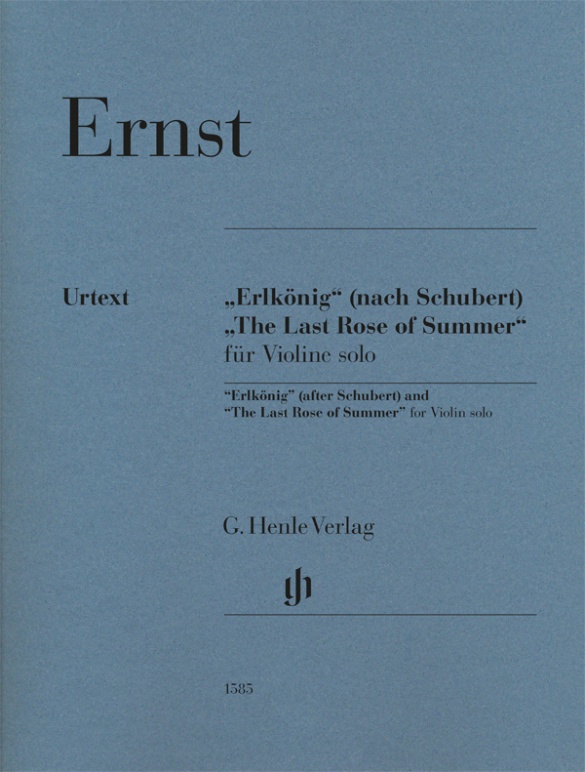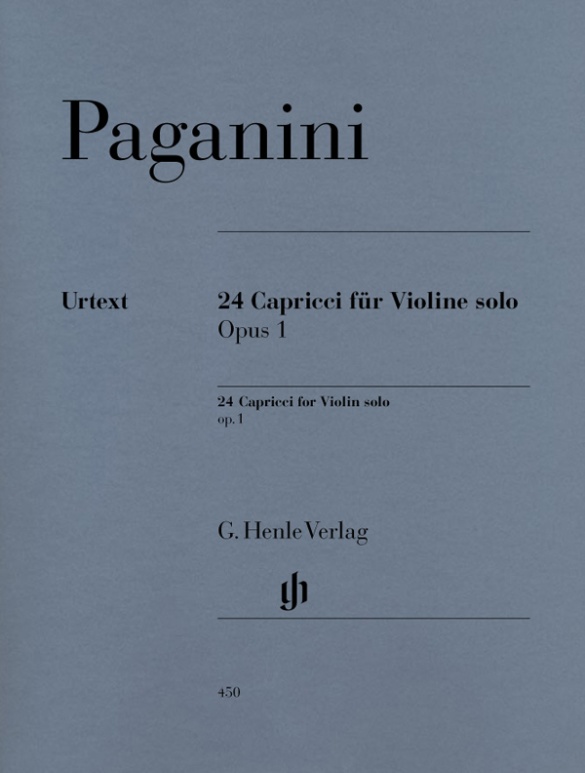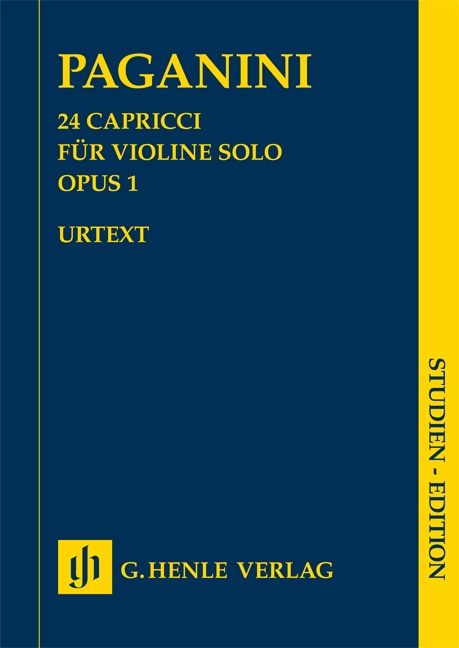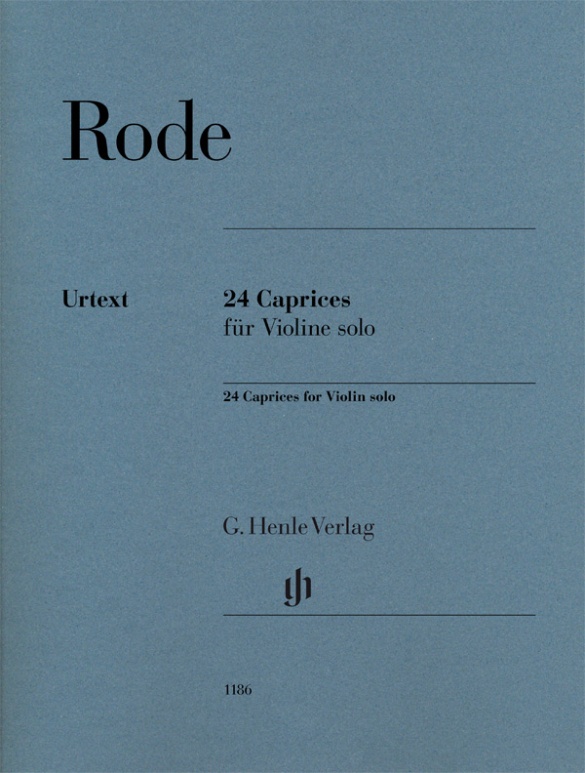

Pierre Rode
24 Caprices for Violin solo
Together with Pierre Baillot and Rodolphe Kreutzer, Pierre Rode founded the important Franco-Belgian violin school at the end of the eighteenth century. Celebrated throughout Europe, this violinist gives impressive testament to his technique with his “24 Caprices en Forme d’Études” in all keys. While concentrating completely on studying technical phenomena, he created valuable compositions that recall Paganini’s pieces of the same name. To this day, the “Caprices” are a milestone in every violinist’s education (conservatory level). For the first time, G. Henle Publishers’ Urtext edition clarifies in detail the matter of the source situation (first edition and revised edition) and offers the musical text in the “definitive version” with all historical notations. As a Rode specialist of the first order, violinist Friedemann Eichhorn assisted with the preparation of this edition and contributed fingering and bowing suggestions ideal for contemporary violin instruction.
Content/Details
About the Composer
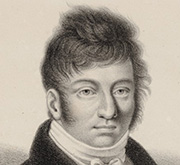
Pierre Rode
French violinist and composer. A virtuoso who enjoyed great success and was a role model for later generations of violinists such as Louis Spohr. His compositional oeuvre included 13 violin concertos, chamber music, songs, as well as teaching materials.
| 1774 | Rode is born on 16 February in Bordeaux. |
| from 1780 | He receives his first violin lessons with André-Joseph Fauvel. |
| from 1787 | In Paris Rode becomes a master student of Giovanni Battista Viotti. |
| 1790 | He makes his debut with Viotti’s Violin Concerto no. 13 in A major in Paris. |
| 1792 | Rode premieres Viotti’s Violin Sonatas nos. 17 in d minor and 18 in c minor in the Théâtre de Monsieur to great acclaim. |
| from 1795 | He is a professor at the Paris Conservatoire. At the same time, he embarks on a three-year concert tour with concerts in Germany, the Netherlands and England. |
| from 1800 | He is a solo violinist in Napoleon’s private orchestra. |
| from 1803 | On his way to Russia he gives concerts in Braunschweig among other places. |
| from 1804 | He is a solo violinist at the Court of Alexandar I in St. Petersburg. |
| 1808 | Rode returns to Paris. Despite his active concert career, he fails to match his earlier success as a virtuoso. |
| 1814 | He moves to Berlin and gets married. Eduard Rietz numbers among his students. |
| 1819 | Rode returns to Bordeaux. |
| 1830 | He dies on 25 November at the Château de Bourbon near Damazan (Dép. Lot-et-Garonne) as a result of progressive paralysis. |
About the Authors

Norbert Gertsch (Editor)
Dr. Norbert Gertsch, born in 1967 in Rheinkamp/Moers, studied piano solo at the Mozarteum in Salzburg and read musicology and philosophy at the Paris Lodron University in Salzburg and the Ruperto Carola University Heidelberg on a scholarship from the “Studienstiftung des Deutschen Volkes”. In 1996 he wrote his doctoral thesis on Ludwig van Beethoven’s Missa solemnis (as part of the New Complete Edition) under Ludwig Finscher.
In the following year, he began to work at G. Henle Publishers, initially as an editor for electronic publishing. After working on a two-year project (1999–2000) sponsored by the German Research Foundation (DFG) preparing a new Beethoven Catalogue of Works, he became a scholarly editor at G. Henle Publishers. In 2003 he became Editor-in-Chief, in 2009 Deputy Managing Director and Head of Publishing. As of 1 January 2024, the Executive Board of the Günter Henle Foundation has appointed Dr. Norbert Gertsch, as the new managing director, succeeding Dr. Wolf-Dieter Seiffert.
Gertsch has published many Urtext editions for G. Henle Publishers, including volumes for a new edition of Beethoven’s Piano Sonatas together with Murray Perahia.
Product Safety Informations (GPSR)

G. Henle Verlag
Here you can find the information about the manufacturer of the product.G. Henle Verlag e.K.
Forstenrieder Allee 122
81476 München
Germany
info@henle.de
www.henle.com
Die Urtextausgabe von Rodes Caprices ist sehr zu begrüßen. ... Die von Norbert Gertsch betreute Ausgabe informiert mit der beim Henle-Verlag zum Markenzeichen gewordenen wissenschaftlichen Akribie über die Quellen. ... So sind diese Caprices Etüden für das Training der Technik, aber zugleich auch Konzertstücke. Um das Umblättern zu ersparen, verwendet Henle bei den drei Seiten umfassenden Kompositionen ausklappbare Seiten. Diese vorbildliche Edition verbindet also wissenschaftliche Akribie mit dem Wissen um die Anforderungen der pädagogischen und spielerischen Praxis.
das Orchester, 2020Fazit: Lohnend, unbedingt!
ESTA Nachrichten, 2021推荐
autogenerated_cross_selling
本书目其他版本


